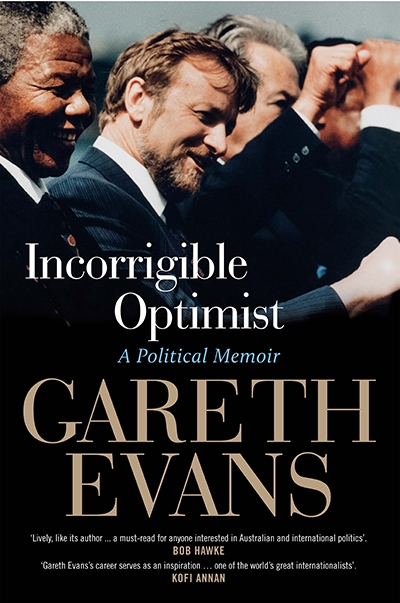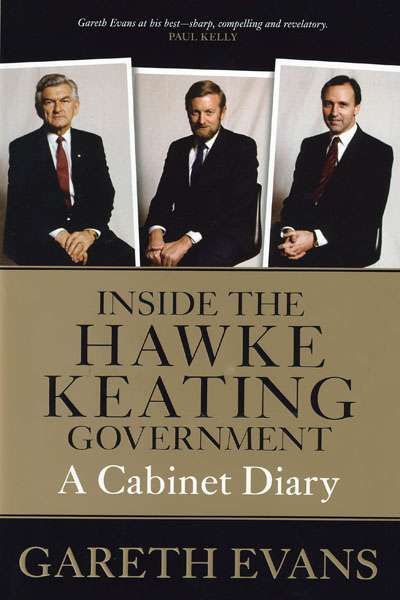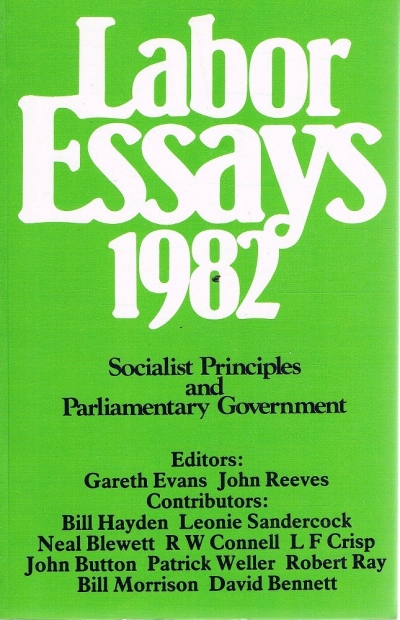Gareth Evans
Good International Citizenship: The case for decency by Gareth Evans
by Alison Broinowski •
What’s the Worst That Could Happen?: Existential risk and extreme politics by Andrew Leigh
by Gareth Evans •
Inside the Hawke–Keating Government: A cabinet diary by Gareth Evans
by David Day •
Never far from one’s mind these days, the events of September 11, 2001, and their direct aftermath in Afghanistan and elsewhere, had to be prominent in this month’s issue of ABR, such is their complex resonance and ubiquitous iconography. To complement Morag Fraser’s essay in this issue on the consequences of ‘September 11’ for civic ...
Labor Essays 1982: Socialist principles and parliamentary government published on behalf of the Australian Labor Party by Gareth Evans and John Reeves
by Peter Kerr •





